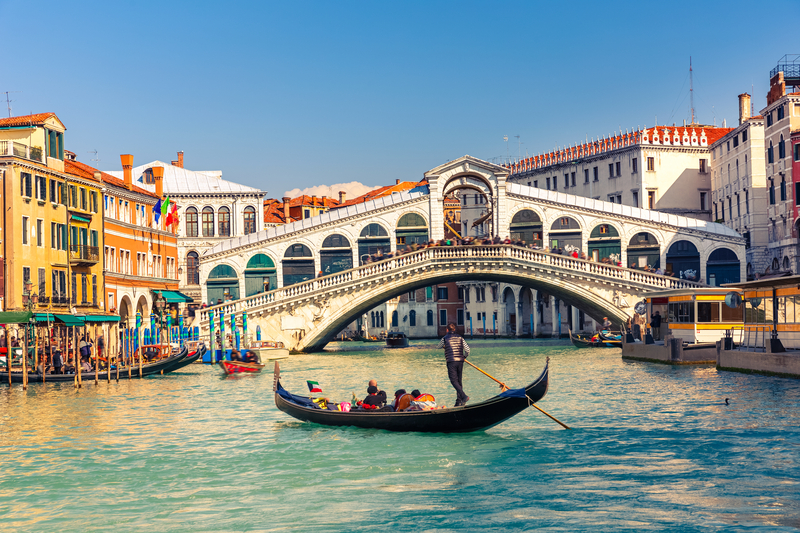The Ultimate Solo Travel Guide to Europe: Discover Yourself and the Continent
Europe, with its rich history, diverse cultures, stunning landscapes, and accessible transportation, is a dream destination for many travelers. But what if you’re contemplating exploring it solo? Fear not! Solo travel in Europe is an incredibly rewarding experience that allows you to immerse yourself fully in new cultures, challenge yourself, and discover a newfound sense of independence. This guide will equip you with the knowledge and confidence to plan an unforgettable solo adventure across the continent.

Solo Travel Guide to Europe
Why Choose Solo Travel in Europe?
Before diving into the practicalities, let’s explore the compelling reasons why solo travel in Europe might be the perfect choice for you:
- Freedom and Flexibility: You dictate your itinerary, change plans on a whim, and spend as much or as little time as you desire in each location. No compromises, just your own desires shaping your journey.
- Self-Discovery: Stepping outside your comfort zone and navigating new environments independently fosters self-reliance, resilience, and a deeper understanding of yourself.
- Authentic Cultural Immersion: Without the distractions of travelling with others, you’re more likely to engage with locals, try new things, and truly experience the culture.
- Meeting New People: Solo travelers are often more approachable and open to meeting fellow adventurers, creating opportunities for meaningful connections and shared experiences.
- Personal Growth: Overcoming challenges, navigating unfamiliar situations, and adapting to different customs builds confidence and expands your worldview.
Planning Your Solo European Adventure
Successful solo travel requires thoughtful planning. Here’s a step-by-step guide to get you started:
1. Defining Your Travel Style and Interests:
- Budget: Determine your budget per day or week. This will heavily influence your choice of destinations, accommodation, and activities.
- Interests: What do you want to experience? History, art, nature, food, nightlife? Tailor your itinerary accordingly.
- Pace: Do you prefer a fast-paced adventure hopping between cities or a slower, more immersive experience in fewer locations?
- Type of Accommodation: Hostels, budget hotels, guesthouses, apartments, or a mix? Consider your comfort level and budget.
2. Choosing Your Destinations:
Europe offers an overwhelming array of options. Here are some popular choices for solo travelers, categorized by interest:
- History Buffs: Rome, Athens, Paris, Berlin, Prague, Vienna.
- Art and Culture Lovers: Florence, Amsterdam, Barcelona, Madrid, London.
- Nature Enthusiasts: Swiss Alps, Scottish Highlands, Norwegian Fjords, Italian Dolomites.
- Foodies: Italy (various regions), Spain (especially San Sebastian), France (Lyon), Greece.
- Nightlife and Entertainment: Berlin, Amsterdam, Barcelona, London, Prague.
3. Booking Accommodation:
- Hostels: A great option for budget travelers and those looking to meet other people. Look for hostels with positive reviews, especially regarding safety and cleanliness. Consider female-only dorms if you prefer.
- Budget Hotels and Guesthouses: Offer more privacy than hostels, but less opportunity to socialize.
- Airbnb: A good option for longer stays or for those who want more space and amenities. Read reviews carefully before booking.
- Couchsurfing: An option that allows you to stay with locals for free, but do note that safety is of paramount issue.
4. Transportation:
Europe has an excellent public transportation system.
- Trains: Efficient and comfortable for traveling between cities and countries. Consider a Eurail pass if you plan on extensive train travel.
- Buses: A more budget-friendly option than trains, but generally slower.
- Flights: Affordable for long distances, especially if booked in advance.
- Local Transportation: Utilize the local public transport system in each city (metros, trams, buses) to get around efficiently.
5. Safety Tips for Solo Travelers in Europe:
- Be Aware of Your Surroundings: Pay attention to your surroundings and trust your instincts. Avoid walking alone in poorly lit or unfamiliar areas at night.
- Protect Your Belongings: Be vigilant against pickpockets, especially in crowded tourist areas. Use a cross-body bag with a secure closure and keep valuables out of sight.
- Share Your Itinerary: Let friends or family know your travel plans and check in with them regularly.
- Learn Basic Phrases: Knowing a few basic phrases in the local language can be helpful and shows respect for the culture.
- Stay Connected: Purchase a local SIM card or ensure you have a reliable data plan to stay connected and access maps, translation apps, and emergency services.
- Emergency Contacts: Have a list of emergency contact numbers readily available, including local police, your embassy or consulate, and your travel insurance provider.
- Trust your Gut: If something feels off, leave the premises immediately.
6. Staying Connected and Meeting People:
- Hostel Common Areas: Hang out in hostel common areas to meet other travelers.
- Walking Tours: Join free walking tours to learn about the city and meet fellow tourists.
- Meetup Groups: Use Meetup.com to find local groups and events based on your interests.
- Language Exchange Programs: Practice your language skills and meet locals through language exchange events.
- Online Forums and Travel Communities: Connect with other solo travelers online for advice and support.
7. Packing Essentials:
- Comfortable Shoes: You’ll be doing a lot of walking!
- Versatile Clothing: Pack clothes that can be mixed and matched.
- Adapters: Europe uses different types of electrical outlets.
- Portable Charger: Keep your devices charged on the go.
- First-Aid Kit: Include essential medications and supplies.
- Copies of Important Documents: Keep copies of your passport, visa, and other important documents in a separate location.
Sample Itineraries:
Here are a couple of sample itineraries to get you inspired:
Option 1: Western Europe Highlights (2 weeks)
| Day | City | Activity |
|---|---|---|
| 1-3 | Paris, France | Eiffel Tower, Louvre Museum, Seine River Cruise |
| 4-6 | Amsterdam, Netherlands | Canals, Anne Frank House, Rijksmuseum |
| 7-9 | Berlin, Germany | Brandenburg Gate, Reichstag, East Side Gallery |
| 10-12 | Prague, Czech Republic | Charles Bridge, Prague Castle, Old Town Square |
| 13-14 | Vienna, Austria | Schönbrunn Palace, Hofburg Palace, Opera House |
Option 2: Southern Europe Escape (2 weeks)
| Day | City | Activity |
|---|---|---|
| 1-3 | Rome, Italy | Colosseum, Roman Forum, Vatican City |
| 4-6 | Florence, Italy | Uffizi Gallery, Ponte Vecchio, Duomo |
| 7-9 | Barcelona, Spain | Sagrada Familia, Park Güell, Gothic Quarter |
| 10-12 | Lisbon, Portugal | Jerónimos Monastery, Belém Tower, Alfama |
| 13-14 | Seville, Spain | Alcázar of Seville, Plaza de España, Flamenco Show |
Overcoming Fear and Embracing the Unknown
Solo travel can be daunting, especially for first-timers. Fear is a natural emotion, but don’t let it hold you back. Start small, be prepared, and remember that every challenge is an opportunity for growth. Embrace the unknown, be open to new experiences, and trust in your ability to navigate the world on your own terms.
The Takeaway
Solo travel in Europe is an incredibly enriching and transformative experience. By carefully planning your trip, prioritizing safety, and embracing the spirit of adventure, you can create memories that will last a lifetime. So, pack your bags, book your flight, and prepare to discover yourself and the magic of Europe.
FAQs:
- Is Europe safe for solo female travelers?Yes, Europe is generally safe for solo female travelers. However, it’s essential to be aware of your surroundings, take precautions, and trust your instincts.
- What is the best time to travel to Europe solo?The shoulder seasons (spring and fall) offer pleasant weather, fewer crowds, and lower prices.
- How much money should I budget for solo travel in Europe?This depends on your travel style and destinations. Budget travelers can get by on €50-€80 per day, while those seeking more comfort and luxury should budget accordingly.
- Do I need a visa to travel to Europe?This depends on your nationality. Check the visa requirements for each country you plan to visit.
- What are some must-have apps for solo travelers in Europe?Google Maps, Google Translate, Citymapper (for local transportation), Hostelworld/Booking.com (for accommodation), and a currency converter.
- What should I do if I feel lonely while travelling solo?Find a tour, eat at a communal table, go to a hostel event or join a group for a specific activity. Many travellers are solo, so you are bound to make friends!



